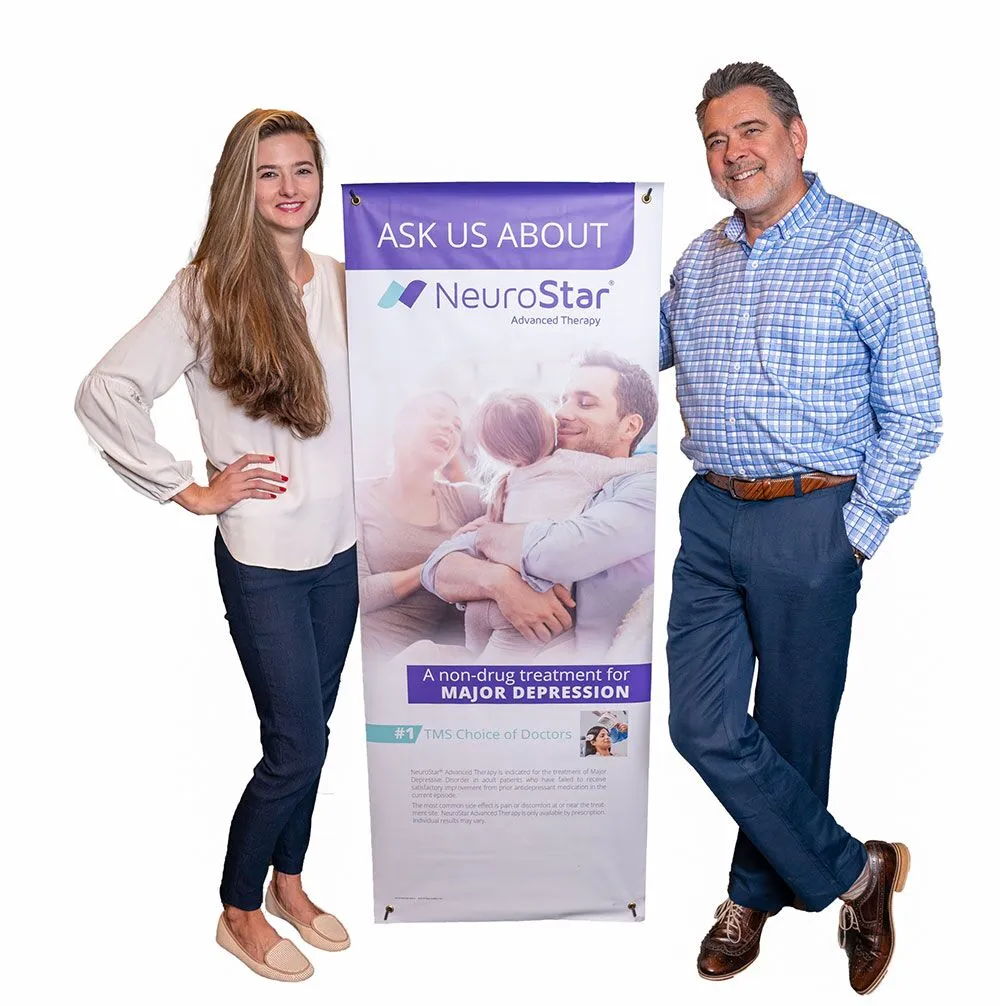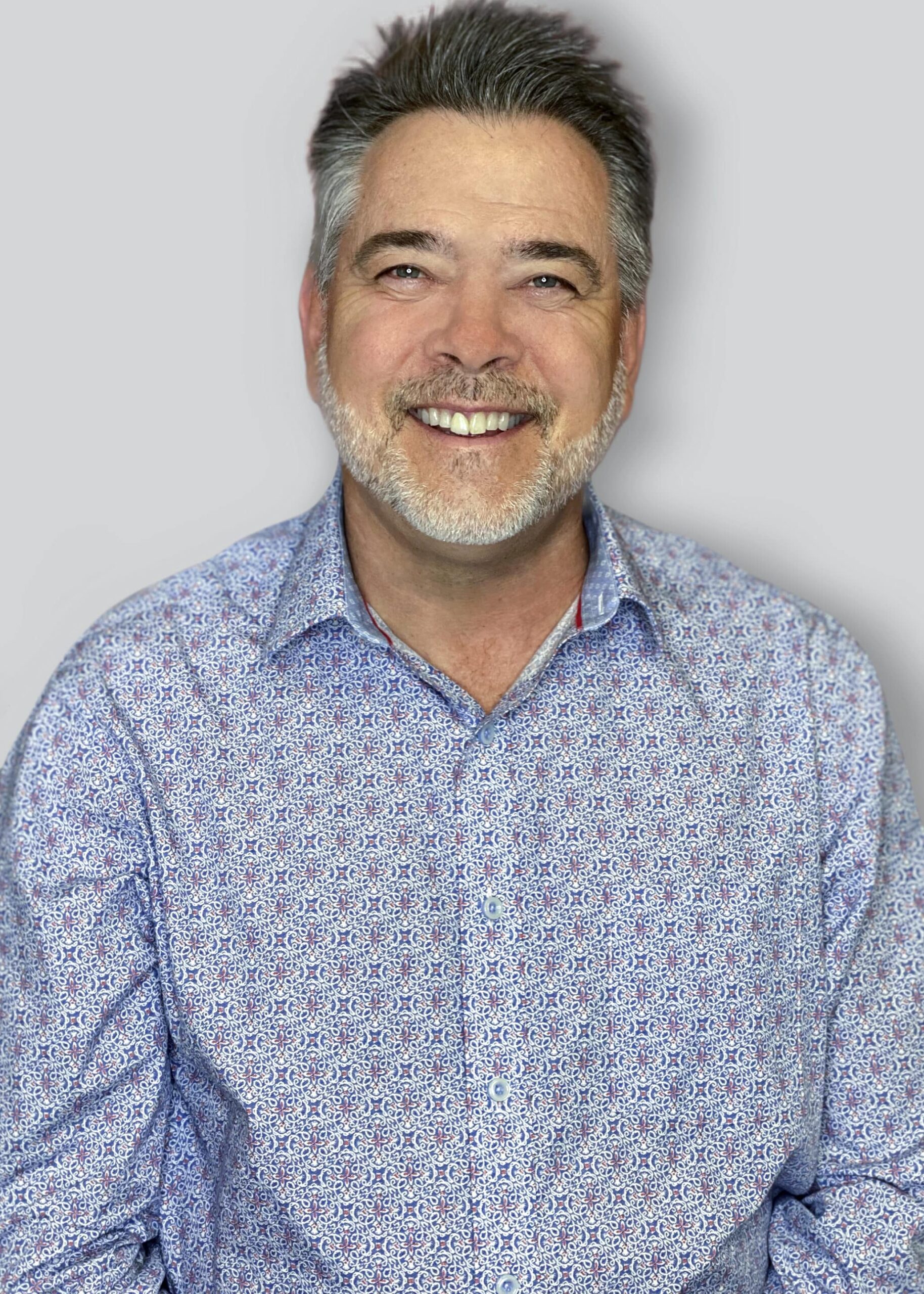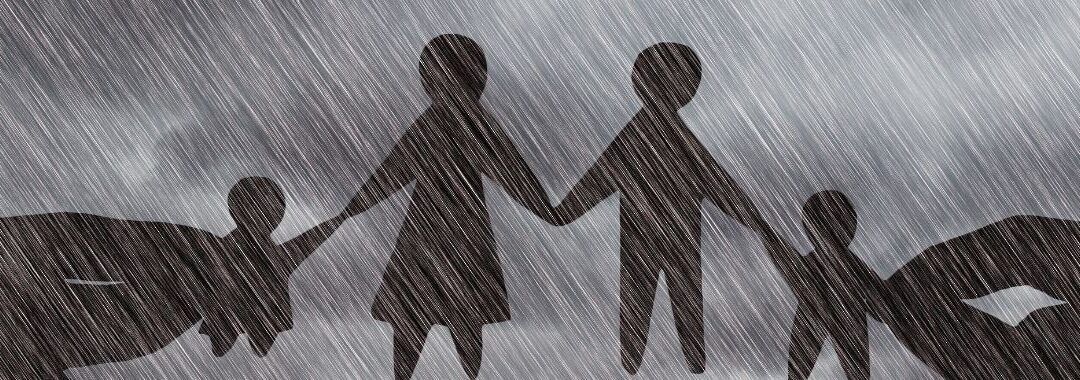What is Treatment-Resistant Depression? (Causes, Symptoms, & Treatments)

8%
Of US Adults Experience MDD
30%
Do Not Respond to Antidepressants
According to the 2020 National Survey on Drug Use and Health (NSDUH), around 8% of adults living in the United States reported having a major depressive episode in 2020. What’s more concerning is the number of adolescents who reported exhibiting major depression symptoms, with 25.2% adolescent females, and 9.2% males.
Somewhere between 10% and 30% of patients diagnosed with Major Depression Disorder (MDD) do not respond, or do not respond positively, to standard antidepressant treatments for this mental illness.
The lives of these patients are often functionally impaired, reducing their quality of life significantly. They may self-injure and may have suicidal thoughts or attempts. Treatments may be effective for a short time, but symptoms return, leading to Treatment-Resistant Depression (TRD).
What is Treatment-Resistant Depression?
Treatment-Resistant Depression is a complex condition and caused by multiple risk factors, making it difficult to be defined clearly. The diagnosis is given to “patients who have not been helped by two or more antidepressant treatment trials of adequate dose and duration,” as one study published by the National Institutes of Health reports.
If you have tried more than two antidepressant treatments without satisfactory results, you may have TRD.
That study also claims that at any one time 14 million people are suffering from depression, but only about half receive any form of treatment. Of the half that does receive treatment, only about one-third get the right medicine on the first try.
Finding the right antidepressant treatment is tricky. A research article published in 2017 gives insight into an attempt to make prescribing the right treatment less challenging, and also reports that:
“Major depression is the second leading cause of disability worldwide.”
Most people have a primary care physician who they go to first with physical problems such as fatigue, changes in appetite, or trouble sleeping. As much as 79% of antidepressants are prescribed by primary care physicians.
How do you Know you Have Treatment-Resistant Depression?
Have you tried at least two different antidepressant medications that haven’t made enough difference in your depression symptoms to significantly improve your quality of life? Did your symptoms improve for a while, but come back later?
If you suspect that you have TRD and you have only worked with your primary care doctor, consider another route to treat depression. Ask for a referral to a psychiatrist.
Because severe depression, and especially treatment–resistant depression, is a complex issue, it often needs a more complex solution. Specialists like psychiatrists and psychologists can often develop more effective treatments for treatment-resistant depression by combining medications with other therapies for better treatment outcomes.
Since a psychiatrist is a medical doctor specializing in mental health issues, they can supervise your medications as well as recommend other treatment avenues to create that complex treatment program you may need to get your joy and hope back.
What if Medication Adjustments Don’t Work for Your TR Depression?
There is hope – and many treatment options for treatment-resistant depression. Sometimes a second opinion brings other physical and mental health issues to light that are contributing to your depression and provides new treatment options.
It’s also important to note that just because you tried taking two different antidepressants at one point in your life doesn’t immediately mean you have TRD. Sometimes, current medications may need more time to become fully effective, dosages may need to be changed, or a different class of antidepressants needs to be considered.
How to Manage Treatment-Resistant Depression
The name “Treatment-Resistant Depression” doesn’t imply that the depression is impossible to treat, but that pharmacotherapy (taking medications) is not effective, and your psychologist should resort to other treatment options, instead.
Psychotherapy for TRD
It is recommended to consider medication therapy combined with psychotherapy – which has been shown to be a much more effective treatment option than either of the two by themselves (source: Psychiatric Times).
There are six types of psychotherapy that can be beneficial to somebody suffering from depression:
- Cognitive Therapy
- Behavioral Therapy
- Cognitive-Behavioral Therapy
- Dialectical-Behavioral Therapy
- Psychodynamic Therapy
- Interpersonal Therapy
Psychotherapy sessions can be held one-on-one, but also in a group of up to 15 people. Family therapy and couples counseling are also available for individuals who believe their intrapersonal relationships could benefit from mediation by a licensed therapist.
Brain stimulation therapies and procedures for TRD
Brain stimulation therapies and procedures are also known to improve depression symptoms. These include:
- Transcranial magnetic stimulation (TMS)
- Ketamine
- Electroconvulsive therapy (ECT)
- Vagus nerve stimulation (VNS)
TMS therapy is a particularly attractive option because it is non-invasive with few side effects and is proven to deliver results.
Lifestyle Choices for TRD
Aside from medication, psychotherapy, and brain stimulation, lifestyle choices can affect your likelihood to develop depression, or to recover from it. Never underestimate the power of getting enough sleep, eating well, and appropriate exercise either.
TMS for Treatment-Resistant Depression: What to Expect?

With a specialty in psychiatry and over 30 years of experience in talk therapy & medication management, Dr. Griffith has become a strong advocate for TMS Therapy over antidepressants simply due to the miraculous results the treatment yields.
Dr. Griffith says, “TMS Therapy is undeniably helping 100’s and 100’s of thousands of people who suffer from depression. Transcranial Magnetic Stimulation (TMS), a non-medication treatment, brings hope to those who aren’t getting the results they want with antidepressants. Antidepressants don’t always work and sometimes different treatment modalities are worth looking into.”
TMS THERAPY IS A GREAT TREATMENT OPTION TO TRY IF YOU’RE NOT BENEFITING FROM ANTIDEPRESSANTS. FOR MORE PERSPECTIVE ON THIS TREATMENT, CHECK OUT OUR TESTIMONIAL PAGE:
We want you to have hope, so don’t settle for sadness. Treatment-Resistant Depression isn’t something you need to live with.
If you need help with your TRD or if you think you might be ready to try something different and more effective, we suggest a free consultation.
We would love to help.

Walter G. Griffith Jr., MD, PA
Dr. Griffith earned his Undergraduate Degree from Notre Dame University and his Medical Degree from Ohio State University’s College of Medicine. He then completed his Residency in Psychiatry at Ohio’s prestigious Cleveland Clinic, and ultimately became the Chief Resident at the Cleveland Clinic in his final year of residency. After completing his residency, Dr. Griffith moved with his family to sunny Florida in 1992, where he worked at several hospitals in the early days of his career, but, ultimately, he decided to start his own outpatient Psychiatric Private Practice in Florida, where he has been working and growing the practice over the last three decades. Dr. Griffith is the Medical Director for the medical practice and oversees all of the medical clinicians who work in the practice in order to help manage the growing patient caseload at both of the medical office locations.
Request an Appointment
Our care team would love to hear from you! We want to see our patients get healthy.
This is our top priority.
- 727-577-1203
- Free Consult







